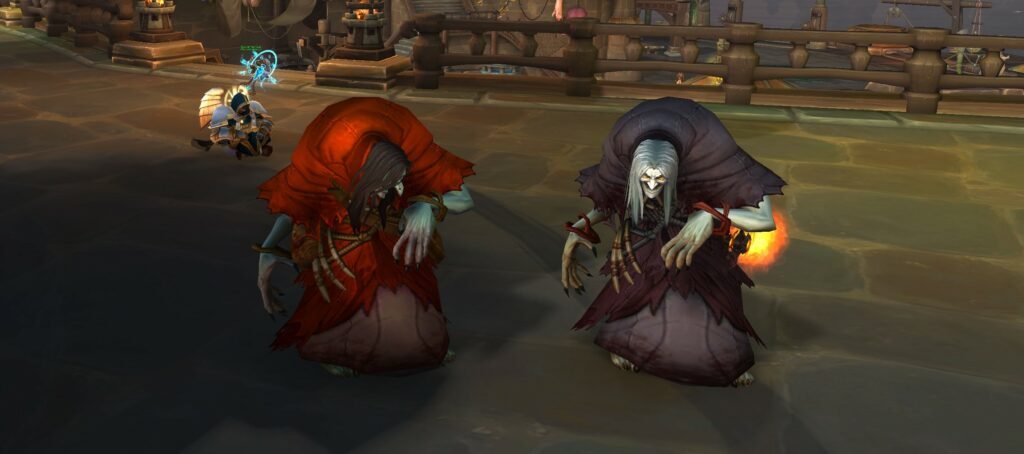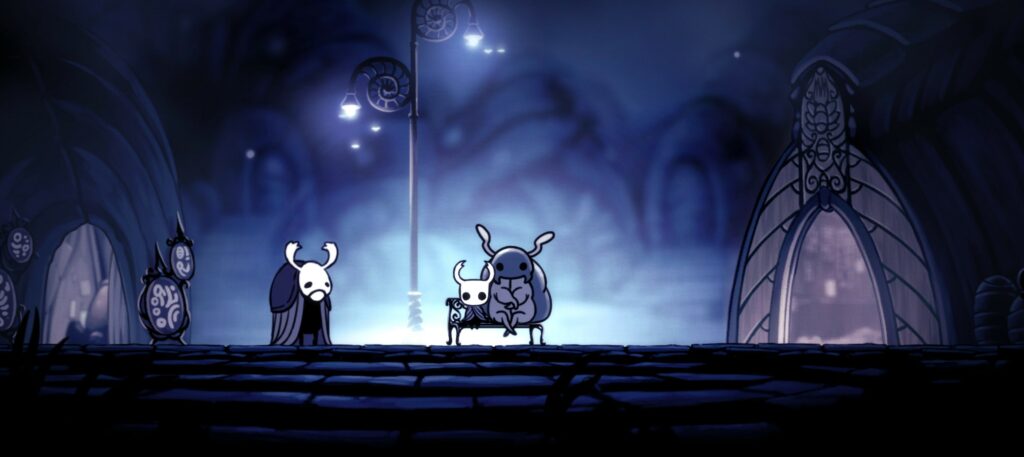This year I tried to fix a problem, and in some ways I was successful. I am, like many gamers, drawn to the bright advertisements coupled with the words “STEAM SALE,” which ultimately leads me to buy several games from my Steam wish list simply because they’re at a discounted price. Those games then stay in my games library, collecting dust until the day where I remember to try them out. I was fully aware of this problem, but chose not to address it. This year I challenged myself to address these games – which I call Backlog Titles – and set a limit on myself to only buy one new game in 2024. That game was Like a Dragon: Infinite Wealth, because there was no way I was making it through the year without playing it! While I started out strong and stuck to my plan, it eventually fell apart leading into the final months of the year. So, while this challenge did motivate me to play a a few games I had been meaning to try out. While in the end I wasn’t successful, I learned some things. Mostly that I can save a lot of money by reigning in my tendency to impulse buy, but I also discovered a few great games and had a lot of fun.
Dave the Diver
I started out the year with Dave the Diver, a game that I thought I would like, but in the end was surprised at just how much I enjoyed it. The premise is simple: by day, Dave must dive into the ocean to catch fish for the new sushi restaurant venture his friend Cobra convinced him to help out with. By night, when the restaurant opens, Dave must engage in diner dash-esque gameplay that sees him planning out the night’s menu and delivering completed orders to customers. Dave is soon introduced to the many wacky characters in the game, and is roped into hunting the seas for the elusive Sea People. The Sea People are mermaids that are heavily involved in the game’s main story.

While I already wrote at length about Dave the Diver, I want to reiterate that it is a very nice game. The main gameplay loop that has Dave both diving for fish and then serving them up at the restaurant is relaxing, and I found myself playing this game for hours at a time. The constant introduction of new quirky characters and additional mechanics, such as a farm, keep things interesting. The game’s main story has Dave fighting all manner of angry sea creature, and wraps up nicely.
Like a Dragon: Infinite Wealth
After how much I enjoyed the previous entry, Yakuza: Like a Dragon, I was excited for Infinite Wealth and where it might take Ichiban’s story. Having known Kiryu would make an appearance in the game, and that one of the game’s story trailers revealed he had gotten sick, I had no idea what I’d be in for. The game was largely confusing to me, and not just because of RGG Studio’s convoluted Yakuza storylines. The game’s main setting is in Hawaii, and it seems that Ichiban is set to have a bright adventure in a foreign land where much hilarity could ensue.

On the other hand, Kiryu is still working for the Daidoji, hidden from his family, and facing down what he believes to be the last days of his life. The game does some cool nostalgic things, like having Kiryu relive memories from past games and participate in Life Links, where Date tracks down important people from Kiryu’s past in an attempt to gain some closure. It’s a cool idea but it clashes against Ichiban’s bright island adventure and the result is that the game seems like two games mashed into one. It also took much of the spotlight away from Ichiban, who was introduced as the new main protagonist of the Yakuza series in the previous game. While that game did a great job at introducing Ichi and showing how he’s different from Kiryu, there was little to move that forward in Infinite Wealth.
Don’t get me wrong, Kiryu is my favorite character in the series, but I think he should have had his own game to explore the things he went through, and also shed more light on the Daidoji faction. I have lots of other thoughts on the game, but, at the risk of repeating myself and rambling, I will move on.
God of War (2018)

This entry into the God of War series is actually the fourth main entry in the series, and served as my introduction. I know little about the previous games, but I love mythology, and so I gave this one a shot. The game has lots of fun gameplay with choices to be made regarding armor and weapon enhancements which give Kratos different abilities in battle. Aside from that, there’s lots of places to explore and items collect, with an interesting cast of characters. At it’s core, it’s a story about a father and son who are forced to travel together and, in time, trust each other. While Kratos’ son Atreus does get whiny at times and the writing direction given to his character can be strange, I overall enjoyed the experience.
Untitled Goose Game

Playing as a mischievous goose in a short game that has the player running through a checklist of items to steal and people’s day to ruin was a nice change of pace. With all these long, story-driven RPGs on the list for this year, sometimes it’s nice to take a break from all that and play a a game with a dedicated honk button. Goose Game is one of those titles I had been wanting to play for years and finally got around to it when I took tally of all the Steam games I left neglected in my library. The game is sectioned out into different areas, each increasingly complex, which are sprinkled around the game’s world. This game was easy and unserious, and reinforced the idea that geese are a menace.
Cocoon
I wasn’t quite sure what to expect with Cocoon, but I ended up loving it. The game is simplistic with no dialogue and only one button. It’s a short puzzle game set against a sci-fi theme, and since there’s no dialogue, the small story is told exclusively through the environment. The game has the player exploring several worlds which are contained within orbs. As the game progresses and the player collects more orbs, it becomes increasingly complex to transport them all. Orbs can be stored within other orbs, and each orb grants a unique ability, so it gets out of hand pretty quickly.

The best part about this game for me is the payoff at the end, where the player has successfully transported all orbs to their intended location. It turns out that the player is helping to create what seems to be a new solar system where each new planet is one of the orbs the player collected. It’s a very cool idea, and one I enjoyed uncovering.
Planescape: Torment
What can change the nature of a man? An interesting philosophical question, but also an important one the player is asked several times throughout the game. Planescape: Torment was made by the developers of Baldur’s Gate 1 and 2, and uses the DnD 2.5 edition ruleset. While it has many classic DnD monsters, races, and ideas, Planescape is a different campaign/world setting. While Baldur’s Gate has a greater focus on combat, Planescape places important in dialogue. Speaking to NPCs in Planescape often feels like a puzzle where the right dialogue choices will net you greater experience and valuable information.

The entire game is a mystery. In this case the player is called the Nameless One because he has lost his memory. What’s more, he appears to be an immortal who has died and reanimated countless times before. You get the feeling that everywhere in the game you visit you have done so before, and many people seem to recognize you yet most cannot give useful details as to your identity. Planescape’s story is a personal introspective one. You won’t find yourself becoming a hero who saves the city, like in Baldur’s Gate, but you can choose to do good deeds. This game is one of the most enjoyable titles I played this year, and I look forward to writing a more detailed post on the subject.


